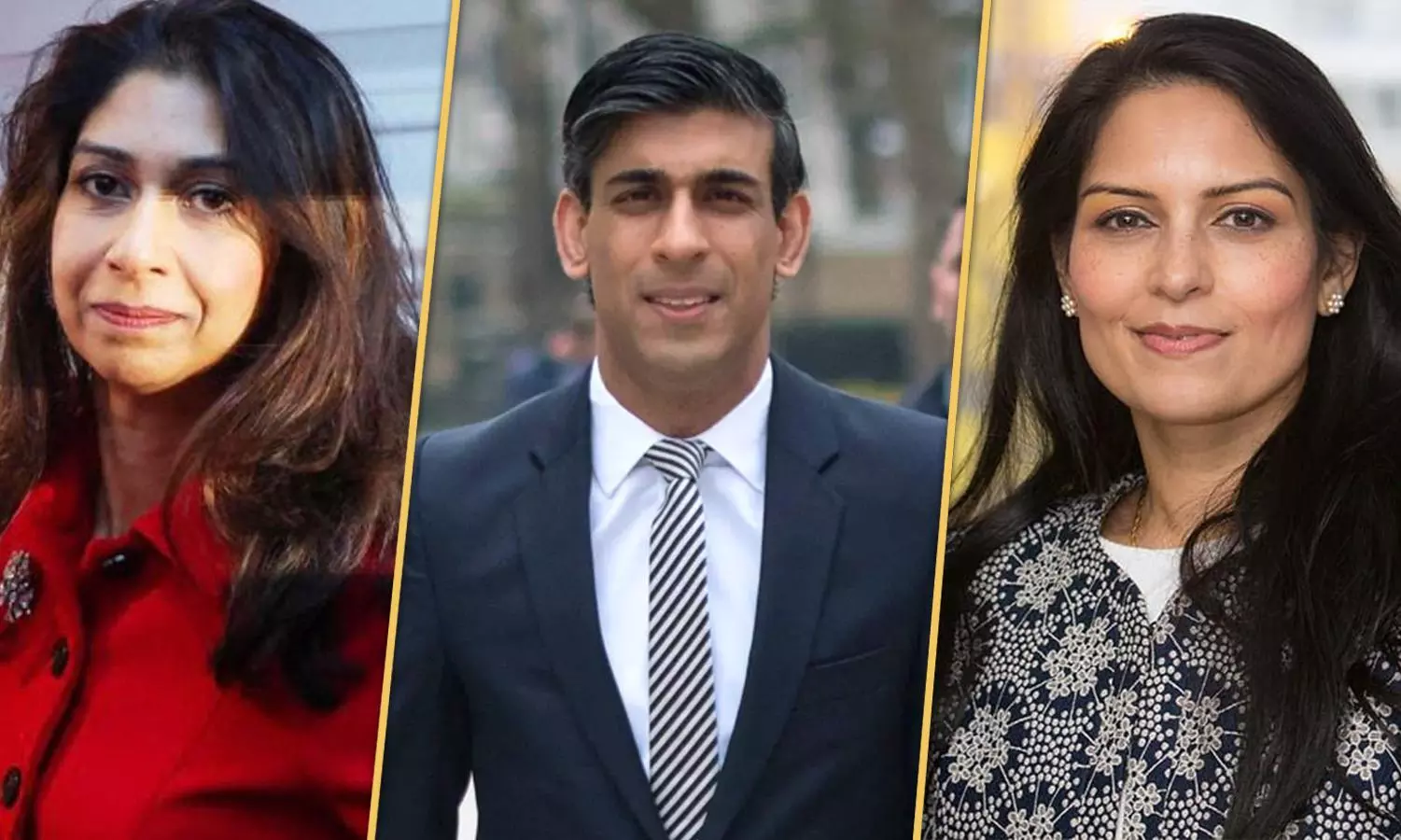
- Home
- India
- World
- Premium
- THE FEDERAL SPECIAL
- Analysis
- States
- Perspective
- Videos
- Sports
- Education
- Entertainment
- Elections
- Features
- Health
- Business
- Series
- In memoriam: Sheikh Mujibur Rahman
- Bishnoi's Men
- NEET TANGLE
- Economy Series
- Earth Day
- Kashmir’s Frozen Turbulence
- India@75
- The legend of Ramjanmabhoomi
- Liberalisation@30
- How to tame a dragon
- Celebrating biodiversity
- Farm Matters
- 50 days of solitude
- Bringing Migrants Home
- Budget 2020
- Jharkhand Votes
- The Federal Investigates
- The Federal Impact
- Vanishing Sand
- Gandhi @ 150
- Andhra Today
- Field report
- Operation Gulmarg
- Pandemic @1 Mn in India
- The Federal Year-End
- The Zero Year
- Science
- Brand studio
- Newsletter
- Elections 2024
- Events
- Home
- IndiaIndia
- World
- Analysis
- StatesStates
- PerspectivePerspective
- VideosVideos
- Sports
- Education
- Entertainment
- ElectionsElections
- Features
- Health
- BusinessBusiness
- Premium
- Loading...
Premium - Events

Priti Patel, Suella Braverman and Rishi Sunak are children of Indian immigrants but are the fiercest opponents of asylum seekers entering UK
Immigration, both legal and illegal, is a major issue in the general elections to be held on July 4 in the UK.
The ruling Conservative party, which is all set to lose power according to opinion polls, had made reducing immigration its prime promise throughout its 14 years in government. Indian-origin Rishi Sunak even made it one of his five pledges when he became the British Prime Minister.
Over the past decade, Indians have been migrating to the UK in greater numbers and they top the lists of all categories both in legal and illegal immigration, be it students, work permits and overstaying visas; they even figure in the small boats crossing the English Channel. Hence, any changes in immigration policy will affect Indians directly.
Rwanda Bill
Just before the elections were announced, the British parliament passed the controversial Rwanda Bill that will deport illegal immigrants and asylum seekers to Rwanda, a country that the UK Supreme Court has called unsafe.
The plan to send men, women and children seeking refuge in the UK to a country thousands of miles away in East Africa is a unique attempt by a Western developed nation to outsource its problems of immigration. If successful, it could set a new template for other countries looking for ways to deal with their ‘immigrant’ problem.
The irony of the Rwanda initiative is that the three people who have pushed the most for it to take flight are themselves immigrants to the UK – Prime Minister Rishi Sunak, former Home Secretary Suella Braverman and her predecessor in the Home Office Priti Patel.
These three Conservative politicians are children of Indian immigrants to Britain who seem to have no sympathy for people like their parents who came to the UK in search of a better life.
Priti Patel’s idea
Had the UK put in place something akin to the Rwanda Bill in the 1960s, then none of their parents would have been allowed to settle in the Uk. Today, they too would be languishing in some African or Asian country, and certainly not be in a position to prevent other immigrants from making Britain their home.
The Rwanda asylum plan was the brainchild of Priti Patel, who is a second-generation Indian immigrant. Patel’s grandparents were born in Gujarat and migrated to Uganda in East Africa before Indian Independence.
Her parents Sushil and Anjana Patel migrated to the UK from Kampala in Uganda in the 1960s and settled in Hertfordshire, just outside London. So, Priti, born in 1972 in the UK, is no stranger to people migrating to make a better life for themselves.
Modi admirer
Patel’s parliamentary career began in 2010, when she was elected from the safe Conservative seat of Witham in Essex and was considered to be part of the party’s ‘new right’.
In 2015, she became the poster girl for ‘Vote Leave’ during the Brexit campaign and came close to future Prime Minister Boris Johnson.
In July 2019, Johnson appointed Patel as Home Secretary and she became the first person of Indian origin to hold one of the four Great Offices of State.
Modelling herself on former British Prime Minister Margaret Thatcher, Patel is also a fangirl of fellow Gujarati Narendra Modi. On the eve of his victory in the 2014 general election, Patel lodged a complaint with the BBC alleging one-sided coverage critical of Modi.
In return, Patel was presented with the ‘Jewels of Gujarat’ award in January 2015 in Ahmedabad.
Patel loses post
In April 2022, Patel visited the Rwandan capital Kigali and signed the Rwanda asylum plan. Her audacious plan to send asylum seekers on chartered planes to Rwanda, 4,000 miles away appealed to the Tory right, even though it was heavily criticised by many charities, human rights organisations and political parties in the opposition.
However, before the Rwanda plan could be brought to fruition, Prime Minister Johnson was forced to resign, thanks to his partying in Downing Street during Covid, eventually bringing an end to Patel’s time in the home ministry.
Suella Braverman
Patel was replaced as home secretary by another second-generation Indian immigrant, Suella Braverman. Suella, whose maiden name is Sue-Ellen Fernandes, is the daughter of Uma and Christie Fernandes, both of Indian origin who migrated to Britain in the 1960s from Mauritius and Kenya respectively.
Her mother Uma is of Hindu Tamil Mauritian descent while her father Christie is a Goan Christian who had migrated to Kenya before moving on to the UK.
So, Suella is no stranger to migration, either.
If people believed Patel was right-wing, then they hadn’t met Suella yet. She took the Rwanda plan and ran with it. She made it her life’s mission to stop the boats, described it as her ‘obsession’ and ‘dreamt’ of the day when a flight full of illegal immigrants and asylum seekers would take off from the UK for Rwanda.
She was particularly unsympathetic towards refugees describing them as ‘swarms’ and an ‘invasion’, and was called out by MPs and Peers from her own Conservative party for using such ‘inflammatory’ and ‘racist rhetoric’.
No fan of India
Unlike Patel, Suella is not a fan of India, despite being of Indian heritage. She was against a free trade agreement (FTA) with India as she feared it would increase migration to the UK and called out Indians as already representing the largest group of people who overstayed their visa and became illegal immigrants. She wanted to send them to Rwanda, too.
The third person in the Rwanda plan triumvirate is Rishi Sunak.
Then comes Rishi Sunak
Sunak, who made history by becoming the first British Prime Minister of colour, is also a child of immigrants.
His paternal grandparents are from Gujranwala, in the Punjab province of Pakistan, and maternal grandparents are from Ludhiana in Punjab, India. His grandparents migrated to East Africa and Sunak’s father Yashvir was born and raised in Kenya while his mother Usha was born in Tanzania.
The Sunak family moved to the UK in the 1960s and Rishi was born in Southampton in south England in 1980.
In January 2023, a few months after Sunak became Prime minister, he too put the Rwanda Bill at the centre of his attempts to stop small boats crossing the English Channel.
Popularity plummets
By the end of his first year in power Sunak’s government had been unsuccessful in delivering any of his pledges. His own popularity along with that of the Conservative Party’s having plummeted, he made getting the Rwanda Bill passed by parliament a prestige issue. More importantly, he hoped that it would prove to be his saviour in the forthcoming election.
The scheme is costing the British exchequer a whopping 370 million pounds and questions of whether it is value for money still loom large.
Rwanda is taking the British migrants for a hefty fee. The deal will cost 1.8 million pounds for each of the first 300 deportees. The whole premise of the scheme is that only a few flights are needed to deter people from crossing into the UK.
Labour and immigration
Critics of the bill have called it ineffective, unnecessarily cruel and costly. The Labour party has promised to abandon the plan if they are elected and instead come up with a more humane and orderly immigration system.
The UK was one of the founding signatories of the UN convention on refugees in 1951 and it has till date been taking in immigrants and asylum seekers in large numbers and treating them with dignity, respect and humanity.(The Federal seeks to present views and opinions from all sides of the spectrum. The information, ideas or opinions in the article are of the author and do not necessarily reflect the views of The Federal.)


